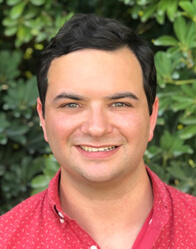Season 1 – Episode 2 – Graduate Research and Controversial Topics
Graduate students enrolled in research institutions across the United States are usually required to undertake a major research project, such as a thesis or dissertation, before completing their degree. During such projects, some students may explore controversial topics involving religion, sex, gender, race, ethnicity, and other related areas. When conducting qualitative research, the researcher must consider the insider-outsider perspective before starting the study. To navigate research activities that involve controversial topics, graduate students should seek guidance from their graduate or research advisor.
Episode Transcript
Click to expand/collapse
Darren Gaddis: From CITI Program, I’m Darren Gaddis and this is On Research. Today, what is dissertation research: Topics graduate students tend to pursue an ethical considerations for researching controversial topics.
I spoke with Lou Kavar, a faculty member in psychology at Capella University, where he serves as the lead faculty member for qualitative research and teaches doctoral level graduate courses and research psychology. Lou has taught in higher education at the graduate level for over 30 years. His own research interest is centered around the integration of spirituality and psychology. As a reminder, this podcast is for educational purposes only. It is not intended to provide legal advice or guidance. You should consult with the organization’s attorneys if you have questions or concerns about relevant laws and regulations discussed in this podcast. Additionally, the views expressed in this podcast are solely those of the presenter and do not represent the views of their employer.
Hi Lou. Thank you for joining me today.
Lou Kavar: Thanks, Darren. It’s good to be here.
Darren Gaddis: To set the stage, what is a dissertation research project?
Lou Kavar: So traditionally, in PhD programs, a graduate student is required to complete a research study, and it’s meant to be on an original topic with the intent of demonstrating the ability that to earn the PhD, the person is able to engage in research. It’s often referred to as independent research, but it’s actually supervised. The chair of the student’s dissertation committee who’s sometimes called an advisor or a mentor is the person who’s really supervising the work.
In some fields, particularly in the sciences like chemistry and biology and probably even engineering, a student may participate in the professor’s research and use that to fulfill the requirement. But in other disciplines, and particularly social sciences, it’s really the grad student leading the research.
Darren Gaddis: And from that understanding what type of topics do graduate students tend to pursue in their dissertation research projects.
Lou Kavar: So my reference point is really the social sciences. I teach in a doctoral program in psychology. And when grad students select their own topic for research, they typically select something that they know about or have experienced in some way. And the challenge is to make sure that the student isn’t too close to that topic so that the student is able to have sufficient distance to be objective in engaging in the research process. Sometimes the research topic is so close and it’s so involved in something that they know or have experienced themselves that it will seem more like me-search rather than research and because they’re trying to investigate something about themselves or their family members or people they know.
So it’s important I think for dissertation chairs, for advisors to work with their students to be sure that the project is really one that the student can engage in a way that they have objectivity around and can look at it through the lens of both existing research and the new research they’re doing.
In the dissertation process, lots of people review the work. There’s a role for the IRB to review, there’s committee members reviewing. In most schools, there are outside reviewers that look at it and all along the way, feedback is given. And if someone’s too close to that topic, they’re going to take that feedback personally and it can really hinder the research process and put it in jeopardy. So I think that’s one of the issues to really consider with graduate students.
Darren Gaddis: And why might a student want to or not want to pursue a controversial research topic?
Lou Kavar: So I think that my experience at least is the controversial topics come up because of that personal investment in something because they’ve experienced something. Seeing that in the graduate program in psychology, there may be traumatic life events somebody experienced or they’ve known about it because of the impact on the lives of loved ones or people they’re close to. Maybe something related to Black Lives Matter or abortion or gender identity issues. And I don’t want to suggest that these topics should not be investigated because they’re socially controversial. But I think it’s important for the learner and the chair of the dissertation committee to have some insight as to the motivation because these can be really involved topics to engage in. And oftentimes, it’s simpler to do a non-controversial topic for the sake of earning the degree and establishing a professional trajectory as a graduate.
Darren Gaddis: And to unpack that a little bit further, Lou, when researching a controversial topic, what are some ethical considerations researchers should remember?
Lou Kavar: I think it’s really helpful to explore someone’s qualification to do research, and especially around a controversial topic. And I think two factors come into play. Do they have the expertise for the area? For example, I’ve had quite a few graduate students approach me saying that they wanted to do some research around gender identity. But as I talked with them about it, I discovered that they weren’t aware of knowing anybody who was trans, they may have seen a couple articles here and there, but they had no training or no real background. And I think ethically, it becomes a concern of engaging in research and in effect poking around in other people’s experience if you don’t have a background, if you aren’t properly trained.
And I think the other piece of this is will research be credible in the eyes of participants based on who you are? I don’t think we can all research everything. And that’s particularly true in cross-cultural studies. I’m an older white man. If I come into a setting, I may not have the kind of validity to work with members of a population that someone from that population may have. Recently, I experienced a case something like this with one of our graduate students who wanted to do research with Native American populations. She herself was white. While she knew some things about native culture, she didn’t have the credibility. So she talked with some elders who from Native American communities who in effect told her that, yes, this is an interesting topic, but maybe you’re just not the person who should do it. And I think that’s the particularly important ethical issue.
Darren Gaddis: And from your experience, what are some resources available for graduate students researching controversial topics?
Lou Kavar: So of course, CITI Program training is invaluable, and I don’t just mean the basic course modules, but all those specific topics that gives insights into working with vulnerable populations as well as other groups and communities. But I think it’s really important to remember that graduates’ education is about learning instruction, and part of that learning instruction can be considering the resources in the students’ community to help them gain expertise for research, especially when a topic is controversial.
And as I’m saying this, I’m thinking about a specific example that happened some years ago. A student presented a topic to me. She was interested in studying long-term relationships among a coupled gay men, whether they were married or not. And I read the proposal and it struck me from her language as well as her wanting to do recruitment in gay bars for people who were in long-term couples that she may not be really well-prepared for this research.
So I met with her and talked with her and I asked why she would be looking for long-term couples in a place that was essentially a singles bar. And in talking with her about it, I realized she didn’t have expertise in working with gay men, didn’t seem to know anybody in any close way. There were people at work that she thought may be gay. And so I sat down with her on the computer and helped her find resources in her area where she could meet people. And she connected with a gay friendly church and with a athletic group. And she just went and talked to people and realized that her understanding of what it meant to be a gay man and a couple was very different than her what she initially thought.
So I think using community resources as well as education, formal education courses in ethics that are part of the graduate program, and recognizing the need for really being prepared and having expertise to work with the population when you’re doing research with that population.
Darren Gaddis: Lou, what else should we know about researching controversial topics?
Lou Kavar: I think that overall, it’s important to recognize that researchers who are graduate students are novice researchers. And too often, or at least my experience, whenever I was a grad student, I was told what to do and what not to do. But I think it’s more helpful to really try to mentor and train graduate students to help them make connections for themselves to see why decisions should be made, especially with ethics in the forefront of research.
These are individuals who will be doing other research in the future beyond the dissertation. So it’s important for them to really have a role model that can help them think through the process and learn what questions to ask themselves to understand not only how to engage in the steps of a research study, but what makes a study ethical.
Darren Gaddis: Lou, thank you again.
Lou Kavar: Thanks. It’s really been a pleasure.
Darren Gaddis: Be sure to follow, like and subscribe to on research what CITI Program to stay in the know. If you enjoyed this podcast, you may also be interested in CITI Program’s, other podcasts on tech ethics and on campus. You can listen to all of CITI Program’s podcasts on Apple Podcast, Spotify, and other streaming services. I also invite you to review our content offerings regularly as we are continually adding new courses and webinars that may be of interest to you.
All of our content is available to you anytime through organizational and individual subscriptions. You may also be interested in CITI Program’s New Data Sharing Requirements for NIH-Funded Research webinar. Please visit CITI Program’s website to learn more about all of our offerings.
How to Listen and Subscribe to the Podcast
You can find On Research with CITI Program available from several of the most popular podcast services. Subscribe on your favorite platform to receive updates when episodes are newly released. You can also subscribe to this podcast, by pasting “https://feeds.buzzsprout.com/1896915.rss” into your your podcast apps.
Recent Episodes
Meet the Guest

Lou Kavar, PhD – Capella University
Lou has taught in higher education at the graduate level for over thirty years. His research interest is the integration of spirituality and psychology. He lives in Atlanta, GA.
Meet the Host

Darren Gaddis, Host, On Campus Podcast – CITI Program
He is the host of the CITI Program’s higher education podcast. Mr. Gaddis received his BA from University of North Florida, MA from The George Washington University, and is currently a doctoral student at Florida State University.






